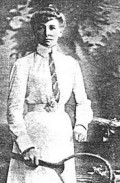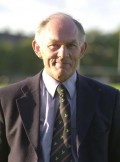|
Worth a bob or two now
Alasdair Reid in the Sunday Herald
For the first – and last – time, the Olympic authorities decided to include live pigeon shooting on their agenda when the 1900 Games were held in the French capital. Leon de Lunden, a Belgian aristocrat, took gold in the main event, having separated 21 of the unfortunate birds from their mortal coils along the way.
But it wasn't just the blasts from the Purdey shotguns that were ruffling feathers that year. Having successfully revived the Games concept in Athens four years earlier, the International Olympic Committee took the even bolder step of allowing women to take part in the 1900 Games.
Granted, there were limits to this pioneering inclusiveness. Men outnumbered women by around 45:1 at the 1900 Games and there would be no female member on the IOC itself until 1981. But it was still a huge move forward from Olympic mastermind Baron de Coubertin's gloriously pompous pronouncement, just four years earlier, that the inclusion of women would be "impractical, uninteresting, unaesthetic, and incorrect".
It was also a fitting showcase for the talents of Charlotte Cooper, the Ealing-born tennis player who wrote her name into history by becoming the first woman to win an Olympic gold medal. Cooper, who would end her days in Helensburgh in 1966 as the matriarch of a Scottish sporting dynasty, achieved that distinction on July 11, 1900, when she beat France's Helene Prevost 6-1, 7-5 in the final of the ladies singles. She subsequently partnered Reginald Doherty to win gold in the mixed doubles event as well.
Cooper's Scottish connections were established when her daughter Gwyneth, or Gwen, who represented Britain in the Wightman Cup and played at Wimbledon, married Max Simmers, who won 28 rugby caps for Scotland between 1926 and 1932. Their sons would subsequently become well-known figures in Scottish sport as well: Brian Simmers followed his father into the Scottish rugby team, earning seven caps between 1965 and 1971; Graeme Simmers was captain of the Royal and Ancient Golf Club and chairman of the Scottish Sports Council.
Brian Simmers remembers his grandmother as entertaining company. "She was a great lady," he says. "latterly, she had gone deaf and her sight wasn't terrific, but she was very sharp and very amusing. I think winning at the Olympics ranked pretty highly for her among all the other things she achieved in tennis. She didn't talk about these things a great deal, but she would tell us stories, just little things, about that time.
"I remember her telling us about setting off on her bicycle one day, and her husband asking her where she was going. 'Oh, I'm just off to the Wimbledon final,' she said. It was a completely different era back then, and I think she just took things in her stride."
As noteworthy as her Olympic triumph was, it was just one among many of her considerable achievements in the game. Tall, elegant and a pioneer of the overhead serve, Cooper's attacking style brought her a host of titles and made her a crowd favourite throughout her long career.
When she won the German champion- ship in 1897, a report of her victory said she had "captivated the lawn tennis world at Hamburg by her style of play. An occasional volley from middle court the German ladies will venture on, but to see a lady go up to the net volleying and smacking balls has not fallen to the lot of players in the Fatherland before. Certainly, no better lawn tennis has ever before been witnessed in Germany".
Fittingly, for one raised in the leafy suburbs of London, she was in her element at Wimbledon. Cooper won her first ladies singles title there in 1895, when she was 24, and her fifth and last in 1908. At the time of her final triumph she was 37 years and 282 days old. Her record as the oldest winner of the women's singles title still stands, but she actually played on for many more years. This year marked the centenary of her last appearance in a Wimbledon final; at the time of her defeat by Ethel Larcombe in 1912 she was just a couple of months short of her 42nd birthday.
Cooper – or Cooper Sterry as she became known after her marriage to Alfred Sterry in 1901 – was also a gifted doubles player, winning the All England mixed doubles titles six times between 1894 and 1900, although the event was not part of the Wimbledon championships at that time. At other times she won the Scottish and Irish championships, as well as a number of titles on the continent.
In truth, Cooper's achievements at Wimbledon, and her sheer longevity, probably dwarf what happened in Paris in 1900. In any case, the Olympics that year were a rather haphazard affair, running in conjunction with the World's Fair, which was also being staged in the city, over a period of five months. In some sports, competitors took part as individuals, while in others they were seen as members of their national teams.
Confusion surrounded many of the events. It is said the croquet competition attracted just one paying customer, while the cricket tournament was won by a club touring side from Devon and Somerset, who beat a team of mostly expat Englishman who represented France to take gold. Margaret Abbot, a Chicago socialite who was studying art in Paris at the time, took part in and won the women's golf tournament, but died in 1955 without ever realising it had been part of the Olympics.
After her husband died, Cooper moved to Scotland to be near her daughter and spent the last 15 to 20 years of her life in Helensburgh. However, although she had sharp memories of her time as one of the country's greatest ever tennis players, there were few mementoes.
"I believe there was a medal for winning the Olympics," says Brian Simmers. "In fact, with the doubles title she must have had two. But I've no idea what happened to them. Given the history, they would probably be worth a bob or two by now."
This article was originally posted on 24-Jul-2012, 10:16 by Hugh Barrow.
Last updated by Hugh Barrow on 24-Jul-2012, 10:17.
|


|









